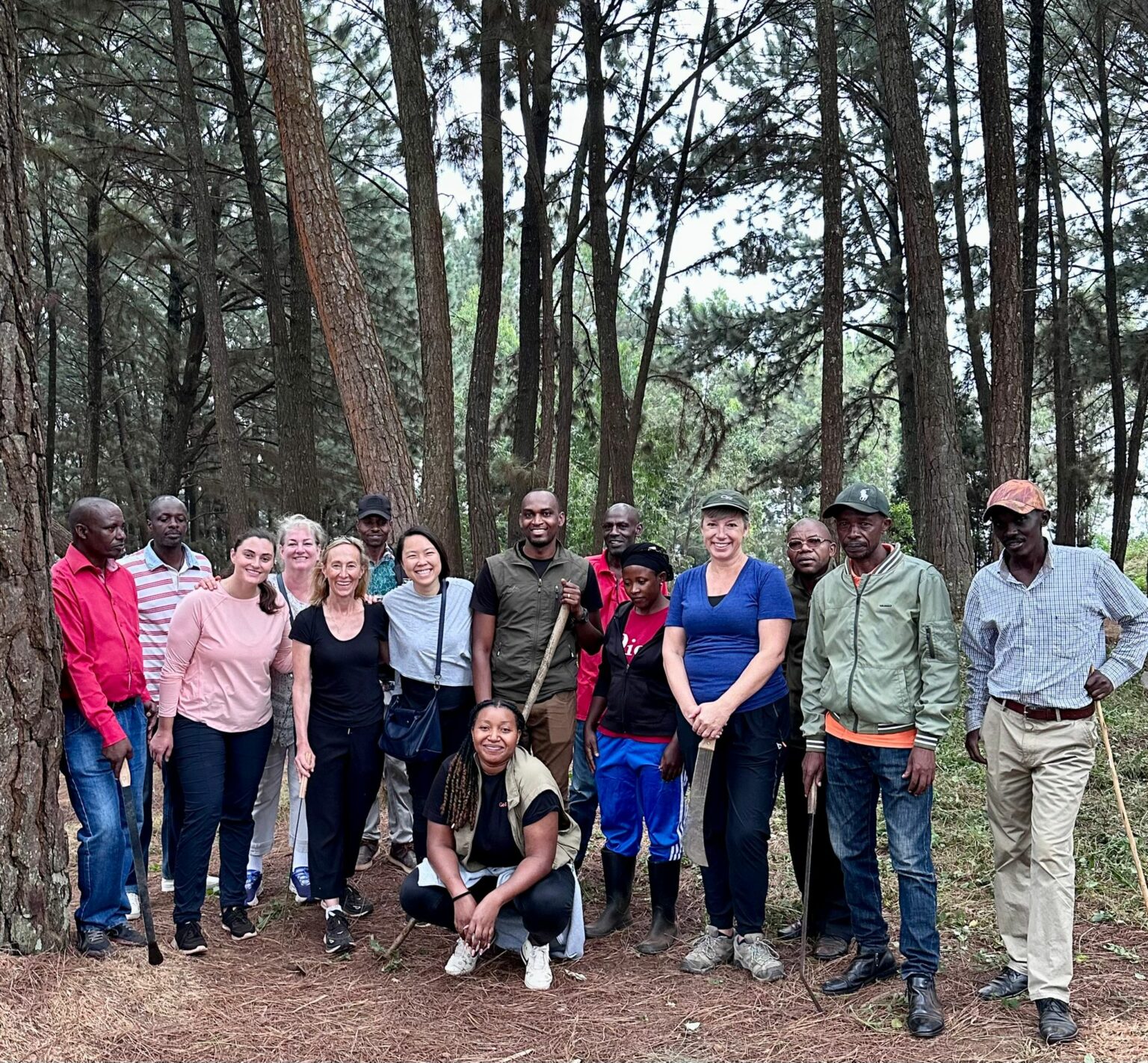Visitors to Rwanda may have noticed that on the last Saturday of each month, many businesses are closed in the morning and the streets are mostly quiet, except for concentrated pockets of people working together in their communities. This is a mandatory monthly practice called ‘Umuganda’, where local area residents come together to perform tasks that will benefit their neighbors and community.
Umuganda is a practice that comes from the Rwandese culture of self-help and cooperation where members of a community call upon family, friends and neighbors to help each other complete difficult tasks. Typical Umuganda activities included farming for those who were unable to do so themselves, building houses for the poor and providing transportation to medical facilities for those in need. The concept of Umuganda originates from a Kinyarwanda word that referred to the wood used to construct traditional houses. Today, Umuganda can best be translated as ‘coming together for a common purpose to achieve an outcome’.
In 1998, with the efforts to nurture a shared national identity and to rebuild Rwandan society in full swing, the Government of Rwanda reintroduced Umuganda as one of the country’s home-grown solutions to work towards healing the trauma of the 1994 Genocide Against the Tutsi. Umuganda is always held between 8 and 11am on the last Saturday of each month with all able-bodied persons aged 18 to 65 encouraged to participate. Most businesses throughout the country are shut during these hours and traffic comes to a stand still, though some businesses like hotels are permitted to remain open. Non-Rwandese are not required to participate in Umuganda but they should be aware of the closures and plan their Saturday carefully.
Besides the practical benefits of Umuganda in accomplishing tasks, it has another great advantage of bringing neighbors together, forging friendships, and allowing those who are new to the area to be introduced. This fosters a strong sense of community that’s not often found in other parts of the world. Umuganda also provides an opportunity for officials to share information about healthcare, education, hygiene, and other social welfare programs so that everyone can get important information first-hand.
Umuganda is an innovative, home-grown solution for Rwanda that involves its citizens in the development of the country and helps decentralize government programs. The work of participants helps build infrastructure such as feeder roads, health posts and schools which in turn saves the government money that would otherwise be spent from the national budget. Other common tasks during Umuganda include trash removal, cutting the grass, trimming bushes, planting trees and repairing public buildings.
Umuganda is a shining example of the commitment of all Rwandans to serve their country together, building towards a brighter future.
